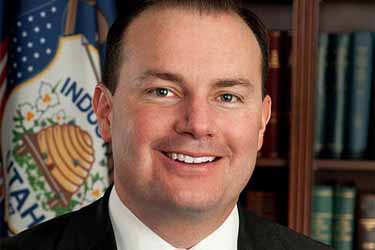Utah Senator Proposes Resolution to Further Limit Access to Safe Abortion Care
Utah Senator Mike Lee has formalized his anti-choice compatriots' House remarks into a new Senate resolution.

Senator Mike Lee (R-Utah) knows that with a Democratic majority in the Senate, the chances of a bill restricting access to safe abortion care is unlikely to go anywhere, but that fact is not stopping the Senator from proposing one. Like his fellow anti-choice politicians in the House, Senator Lee, together with Senators Marco Rubio (R-Florida) and Pat Toomey (R-Pennsylvania), is using the criminal trial of Philadelphia physician Dr. Kermit Gosnell to propose a Senate resolution to call for more restrictions on safe abortion care.
The resolution calls for the investigation of all clinics that provide abortion, as well as a claim of “compelling governmental interest in protecting the lives of unborn children beginning at least from the stage at which substantial medical evidence indicates that they are capable of feeling pain.”
The resolution also attempts to slip in support for the notion that fertilized eggs should have the same legal protections as fully born persons, in case there was any doubt that language about “protecting women” was nothing more than window dressing.
Also of note is a new tactic claiming that because later abortions can often involve referrals to other clinics due to the smaller pool of providers who offer them, such a referral procedure may constitute interstate commerce. The argument could set precedent when it comes to future bills in either the House or the Senate saying that the federal body has the right to create abortion laws for all states if the resolution passes.
That, obviously, is the goal. The resolution won’t create any laws, enforce any restrictions or even create new in policy. It is, however, an effort to force supporters of reproductive rights into a corner. Either they sign on to Senator Lee’s resolution, which would give then give the stamp of Senate approval to the idea that the federal government should be creating TRAP laws such as the clinic regulations passed in North Dakota or Mississippi for all states, or they reject the measure, allowing opponents to paint them as somehow “anti-woman” despite the fact that in the end the regulations being discussed are widely meant to shutter clinics, and have nothing to do with safety.
In the House, grandstanding on the Gosnell trial in order attack the entirety of reproductive health care providers was relegated to CSPAN speeches and formal declarations. In the Senate, anti-choice politicians are looking for action. A resolution may not be the direct action they want, but it’s a stepping stone to the bills they intend to write down the road.
